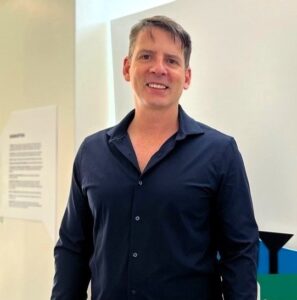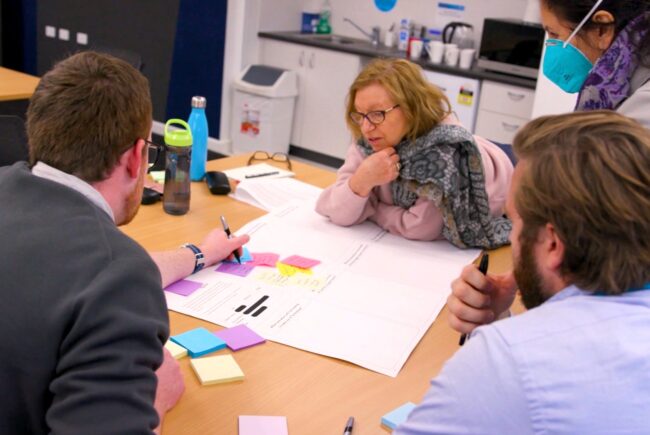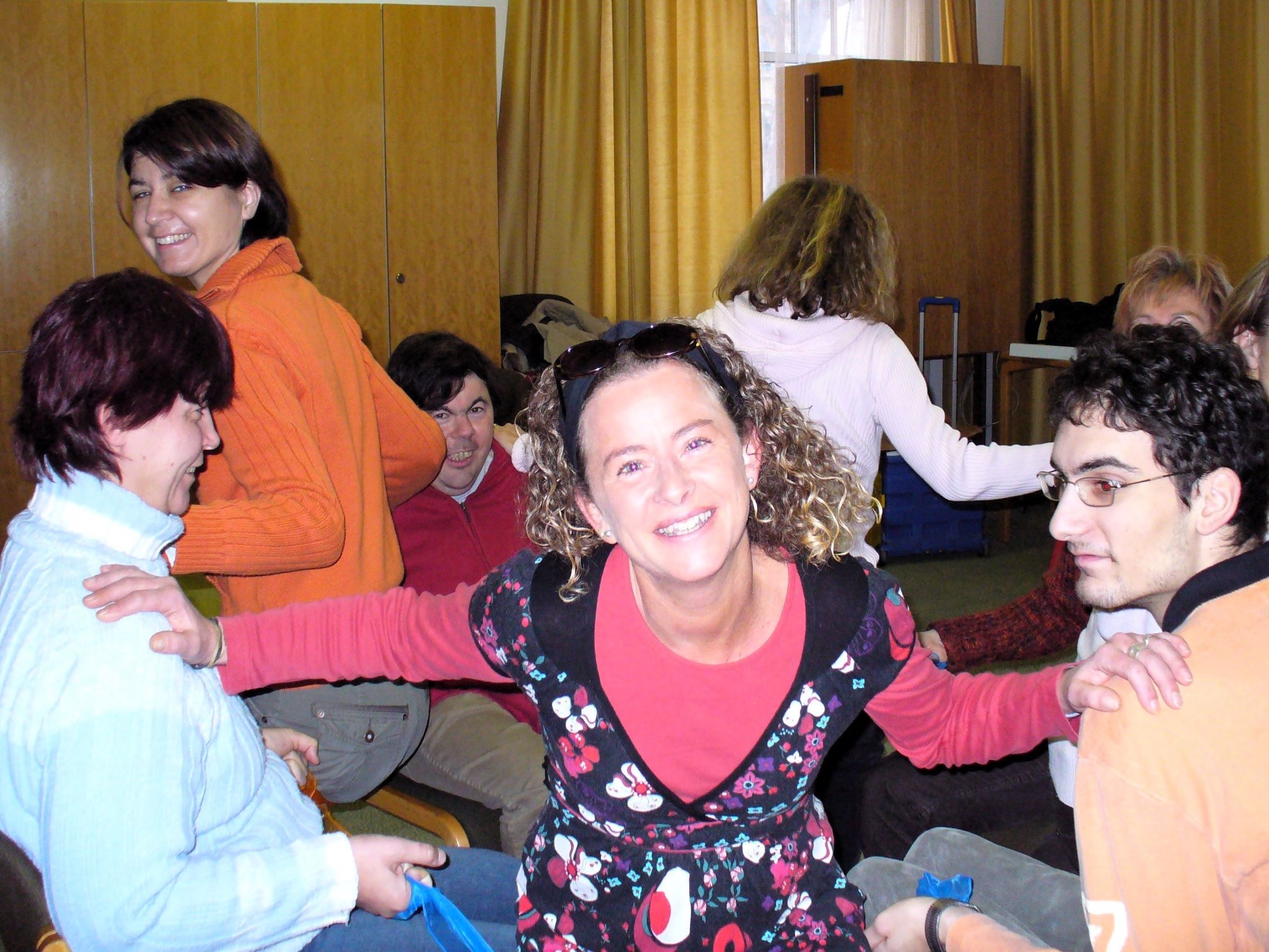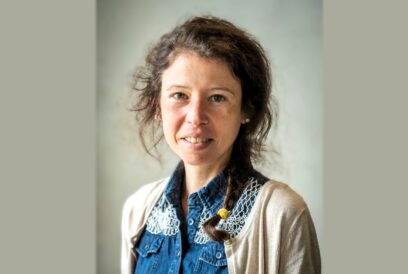A project from the Australian research program Shaping Connections reveals the common obstacles seniors face when attempting to develop digital skills. A key to overcoming these challenges is peer-based learning.
Over the last fifteen years, digital competencies have transitioned from a novelty to a necessity. Whether it’s mundane tasks like paying bills, or social needs such as keeping in touch with friends, the capacity to utilise information and communication technology (ICT) tools is crucial to our connectedness and well-being.
Despite this, many older adults still struggle with the understanding and skills necessary to make ICT meet their needs. These needs vary from community to community, country to country, as do the perceived obstacles between individuals and digital competency. What’s universal, however, is the basis for overcoming those obstacles and meeting those needs.
Shaping Connections is a research partnership between Australia’s Royal Melbourne Institute of Technology (RMIT University) and the University of the Third Age (U3A) Victoria. The team believes that the key to helping seniors overcome their concerns and achieve their goals is the support of other seniors.
“Younger family members are often an older adult’s first port of call for ICT knowledge. Sometimes this is due to perceived experience, but it could also be because of availability or convenience,” explains Dr Torgeir Aleti, Deputy Director of Shaping Connections.
The key to helping seniors overcome their concerns is the support of other seniors.
“Yet interviews with our participants highlighted the frustration and embarrassment their requests for help often resulted in. Family members would make patronising and dismissive remarks about stereotypical relations between seniors and digital technology. Those who don’t give up as a result then seek support elsewhere.”
Model spotting concerns
Conducting workshops across the city of Melbourne, the team observed how participants turned to those they perceived as subject experts in their peer or community groups for support. It was from these experts that participants believed they’d gain the most relevant and helpful knowledge about ICT.
This led to the development of the Shaping Connections’ co-designing model in which seniors are provided self-assessment tools in the form of exams and activity boards to help them express their concerns about using digital technology. Their concerns are then given form as personas – fictional characters who reflect the common risks participants perceive around the use of digital technology.
Workshop leaders encourage learning groups to discuss and develop strategies for addressing these perceived risks. Through this, seniors indirectly articulate their fears and concerns indirectly, avoiding the frustrations they may experience with family members to provide a clear path to understanding and, ultimately, digital competency.
Where the persona task is designed to align participants with common concerns held by seniors, the rest of the process is based on recognising their needs as individuals. Understanding what each person wants to use ICT for ensures engagement in the learning part of the workshop.
Meeting individual needs
“Older adults come to the University of the Third Age networks across Australia with no expectation of courses contributing to their working lives,” says Anne Grigg, President of the University of the Third Age Victoria.
“There is no compulsion to be there, or to upskill beyond their unique interests, as there would be in a workplace. People come to the University of the Third Age to meet their individual needs so our approach must be based on meeting those needs.”
People come to U3A to meet their individual needs. Our approach must be based on meeting those needs.
This is helped by how the University of the Third Age Victoria, and all University of the Third Age networks in Australia, are structured. Rather than being linked to traditional universities, as is common in the French University of the Third Age model applied across most of Europe, the University of the Third Age Victoria is founded on the autonomous, volunteer-driven approach of the English model.
“An integral part of the model of the University of the Third Age in Australia is based on seniors sharing and learning together,” explains Anne.
“When someone with an interest in a topic or activity volunteers to lead a course, they do so with the goal of developing the path the course takes in collaboration with the participants. Leaders respond to the needs and interests of participants in their classes, which encourages active participation.”
The multicultural factor
There’s another important factor in this approach to individualised learning, which has proved crucial in Australia’s multicultural society, and would be important to consider if partner programs were to be rolled out across communities in Europe. This factor is the role culture plays in helping participants see their concerns reflected in the personas presented to them.

According to Bernardo Figueiredo, cultural context has a big impact on defining how individuals think about technology. Photo: Kvs.
“When we took the workshops to the outer suburbs of Melbourne, we witnessed the impact which cultural context has on defining the way individuals think about technology,” reveals Associate Professor and Shaping Connections director, Bernardo Figueiredo.
“In the Egyptian-Australian community, for example, women tend to have higher digital literacy levels and be more active online than men. How such nuances shape how seniors of different cultural backgrounds want or need to use technology is critical to developing programs that will deliver results for them.”
Participant and partner results
As workshops have continued and participants have put what they learnt into practice, the results have become clear not only from their perspective, but also from the perspective of the University of the Third Age’s mentors and their partner organisations.
One participant, Mary, revealed how a lesson with her mentor proved helpful after having an accident.
“My mentor Janice had just showed me how to use QR codes. I went to the clinic, and that’s what they wanted me to use. And I was so happy! I said, ‘Oh, look at this, I know how to do this!’”
Others, such as Shirley, have talked about how they are “expanding my movement around the area” thanks to a newfound understanding of Google Maps and public transport apps, while Sinad revealed he’s planning a holiday to the US based on information he’s obtained through ChatGPT and Microsoft’s Copilot.
“They are not taking it for granted”, says Janice Boswell, one of the mentors, a sentiment echoed by her colleague, Peter Cleary.
“When they’ve learnt something and then come back and say, ‘Oh yeah, that works very well’, you can see the gratification on their faces.”
Partner programs have highlighted how flexible the process is in aligning with and amplifying existing programs for different communities and cultures. Peter Eade runs the Tech Cafe project at Glenroy Library in Melbourne’s north.
“There’s definitely some experience we’ll take forward when we structure our program in the future, now we know that the approach developed by Shaping Connections can be really effective,” he says.
“We’ll look into incorporating this approach into our program, as well as further collaboration with the University of the Third Age.
The time in which age may have been seen as an excuse not to have a digital presence has passed. Each day, more and more of our lives are digitised and made available exclusively behind a device and internet connection.
By promoting individualised learning, supporting co-design strategies, and providing safe spaces in which seniors can learn with and from those who understand their unique needs, we can ensure the path to digital competency is direct and free of frustration.
Associate Professor Bernardo Figueiredo
Shaping Connections Co-founder & Director
Bernardo is an Associate Professor in Marketing in the School of Economics, Finance and Marketing at RMIT University. His current research projects focus on value creation, collaborative networks, technology, and ageing.
Dr Torgeir Aleti
Shaping Connections Co-founder & Deputy Director
Torgeir is a Senior Lecturer in Marketing in the School of Economics, Finance and Marketing at RMIT University. Torgeir’s research investigates social and relational aspects of consumption choices and behaviour.
Anne Grigg
President, U3A Network Victoria and Course Development, U3A Kingston
Anne worked as the Members Services Manager at U3A Network Victoria before her second retirement. In her U3A roles and as a primary school leader, she has a strong interest in developing community relationships.
The Shaping Connections partnership also includes Glen Wall, Professor Mike Reid, Professor Diane M. Martin, Professor Larissa Hjorth, Jacob Sheahan, and Dr Mark Buschgens.
Shaping Connections
Shaping Connections is a research program bringing together academics from the Royal Melbourne Institute of Technology and stakeholders from the University of Third Age Victoria seeking to understand how technology use supports seniors’ connectedness and enhances social inclusion and participation.











